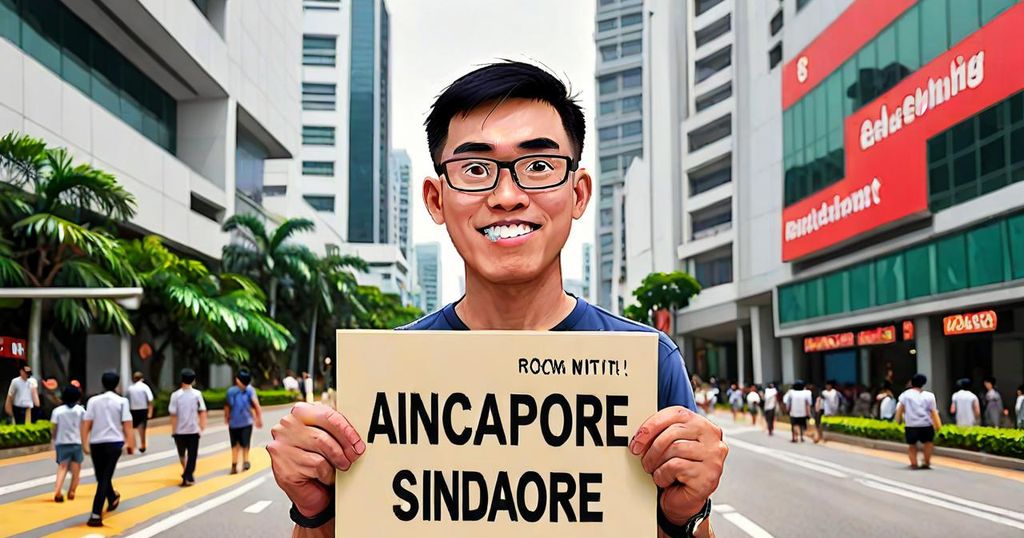Jolovan Wham, a prominent civil rights activist, has recently come under scrutiny by authorities in Singapore for displaying a simple smiley face sign, leading to potential legal ramifications. However, the incident has also sparked a wave of solidarity with Mr. Wham, as the use of smiley faces has become a symbol of support for his cause.
Mr. Wham is no stranger to controversy, as he has previously highlighted issues related to freedom of speech in Singapore. His clashes with the government have included inviting Hong Kong democracy activist Joshua Wong to speak at a conference, organizing a candlelit vigil for a Malaysian man executed for drug trafficking, and participating in a silent protest on a train. Although these actions may seem relatively benign compared to protests in neighboring countries, Singapore maintains strict regulations on public assembly and freedom of speech.
The photo of Mr. Wham holding the smiley face sign was not an isolated incident, but rather a display of support for two young climate activists who had been questioned by the police for their advocacy. Despite Mr. Wham’s insistence that his action was not a protest, but rather a demonstration of solidarity, the authorities viewed it differently and charged him with illegal public assembly.
If convicted, Mr. Wham could face a fine of up to S$5,000 (US$3,700; £2,800) in addition to charges related to previous alleged protests. Despite the potential legal consequences, Mr. Wham remains steadfast in his advocacy for freedom of speech and civil rights in Singapore. His unwavering commitment has garnered widespread support, with 200 people sending him smiley faces and expressing their solidarity through the #smileinsolidarity hashtag.
Mr. Wham’s case has attracted international attention, with human rights organizations condemning the charges against him. Phil Robertson, the deputy Asia director for Human Rights Watch, has labeled the prosecution as “absurd” and called for Singapore’s government to engage in a national conversation about civil and political rights.
The controversy surrounding Mr. Wham’s smiley face sign has brought attention to the restrictive nature of public assembly laws in Singapore and prompted a discussion about the state of civil liberties in the country. Despite facing legal challenges, Mr. Wham’s advocacy for freedom of speech has garnered widespread support, demonstrating that there are many in Singapore who share his dissatisfaction with existing laws.
In the face of adversity, Jolovan Wham remains resolute in his fight for civil rights and freedom of speech, undeterred by the potential legal repercussions. His case serves as a catalyst for a larger conversation about civil liberties and the right to peaceful assembly in Singapore.

Leave a Reply